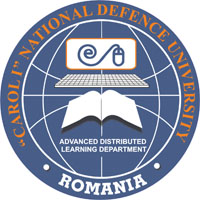E- MENTORING IN OPERATIONAL NAVY LEADERSHIP
E- MENTORING IN OPERATIONAL NAVY LEADERSHIP
Author(s): Carmen Luminita CojocaruSubject(s): Education
Published by: Carol I National Defence University Publishing House
Keywords: e-mentoring; navy leadership; social influence; social learning; apogetic learning
Summary/Abstract: The study aims to analyze the issue of mentoring and e-mentoring processes within the context of naval operational Leadership, with a focus on individual, team and organizational peculiarities along with the socio-economic factors that influence the shipping industry. The "Mircea cel Bătrân" Naval Academy is a prestigious institution of higher education whose mission is to prepare effective leaders both in the navy, and in the merchant marine domains. What we understand by naval operational leadership is a process of social influence in which the leader causes changes in the attitude and behaviour of their followers in order to explicitly and efficiently achieve the tasks entrusted. Attitudinal changes are primarily based on cognitive, affective and motivational structures, at personality level; hence, the rhetorical interrogation whether the leader, be them military or merchant marine, is a mentor. We include the processes of mentoring ande-mentoring in the broader area of social learning and life-long learning in an organizational framework, since we consider the military a "learning organization". We support this by checking the criteria proposed by Senge (1990): personal mastery, mental models, team learning, shared vision, systematic thinking. By further study of concepts, we believe that we can bring into question a certain type of learning, e.g. apogetic learning, as peak or innovative - anticipatory learning, opposed to constant and maintenance learning. In the formative educational process, mentoring ande-mentoring are valuable tools inshaping the character of students in accordance with the requirements of their profession, as well as in the career development and promotion. The last part of the study advocates andexemplifies the need for e-mentoring by adapting traditional mentoring strategies topermanent changes in the shipping industry. We compare here the formal and informal organizational e-mentoring of the higher education military institution (e-learning platforms, tutoring, simulations, peer-mentoring ...) with the e-mentoring imposed by international missions (modern technology training-ECDIS, modern training technology including distance learning and web-based learning, etc.).
Journal: Conference proceedings of »eLearning and Software for Education« (eLSE)
- Issue Year: 11/2015
- Issue No: 01
- Page Range: 428-432
- Page Count: 5

